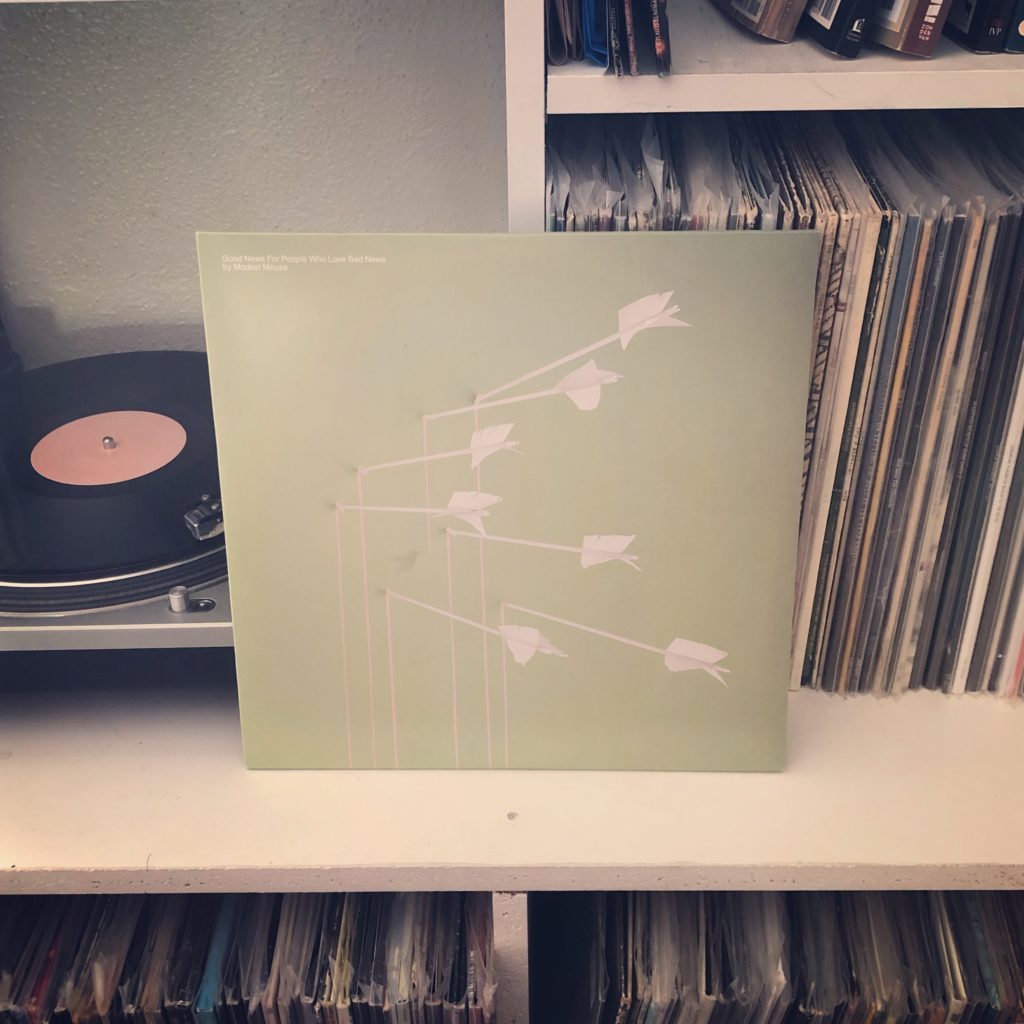
Every once in a while, a record comes around that completely transcends what it was trying to do.
For example, no one ever would have guessed that what started as an emo-leaning indie band with a manic, ranting lead singer would one day release a pop song as perfect as “Float On.” Yet fifteen years later after that song hit #68 on the Billboard charts, it remains an indelible part of the cultural consciousness.
And the record that spawned it is cleverly accessible without giving any sort of concession at all to their more out-there elements. For instance, the bluegrass-tinged, atheist angst anthem “Bukowski” doesn’t sound like they belong anywhere near the Billboard charts. Yet it is somehow cohesive in the tracklisting of Good News.
Throughout the record, the group plays with primal, Tom-Waits-in-New-Orleans jazz (“The Devil’s Workday“), angular, dancy indie pop (“The View“), and mournful acoustic ballads (“Blame it On the Tetons“). By the time the big, crashing riffs of “One Chance” come around, you might forget the blissful chill of album opener “The World At Large.”
But while their sonic palette shifts from electric guitars to banjos to synthesizers to woodwinds, the biggest constant factor is Isaac Brock, whose mercurial voice spits out a ceaseless stream of endlessly quotable, clever lyrics, all coated with a generous helping of venom. “You wasted life, why wouldn’t you waste the afterlife?” On claims of God’s sovereignty, he sings, “Who would want to be, who would want to be such a control freak?” “Are you dead or are you sleeping? God, I sure hope you are dead.”
There’s a bit of dialogue around Modest Mouse’s discography, with a fair amount of lamentation around their signing to Epic records. And while I haven’t spent nearly as much time with their first three records as I have this one, I’m pretty sure there’s a reason for it. Good News For People Who Love Bad News is the best summation of what the band does well in a package that is both accessible and fierce. That combination gave Modest Mouse a permanent part in the canon of rock and roll history—almost entirely separate from what came before or after.